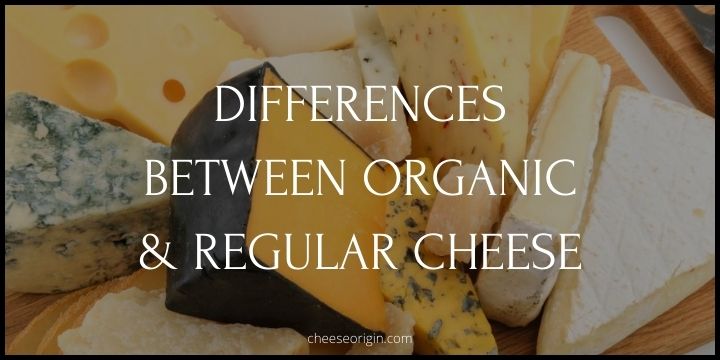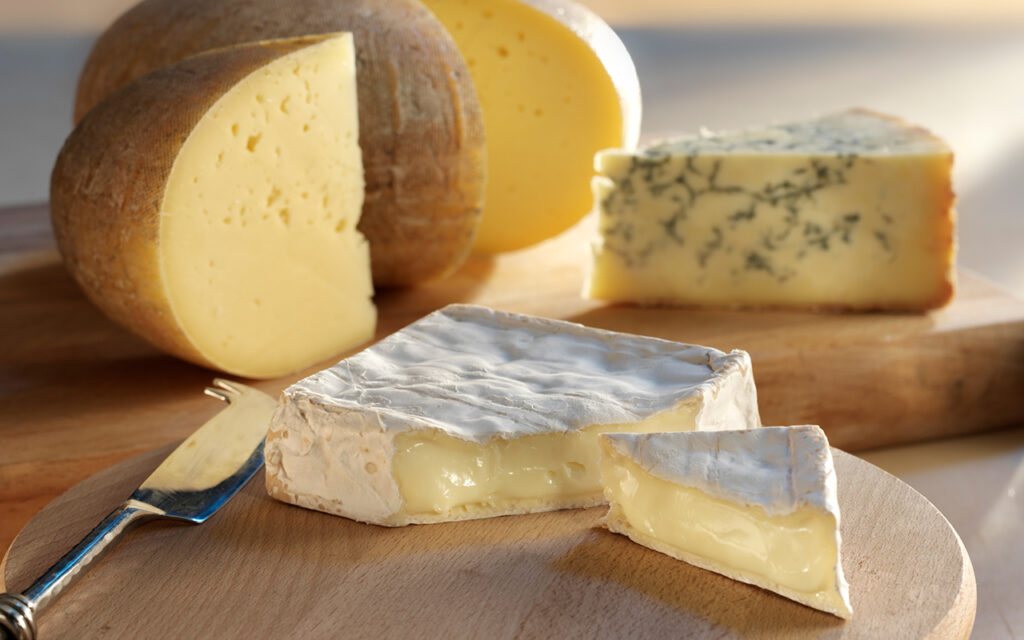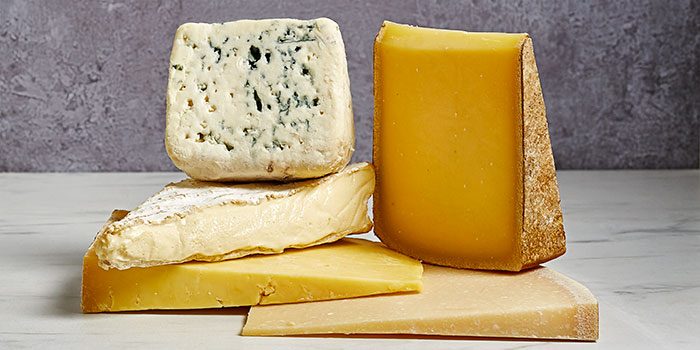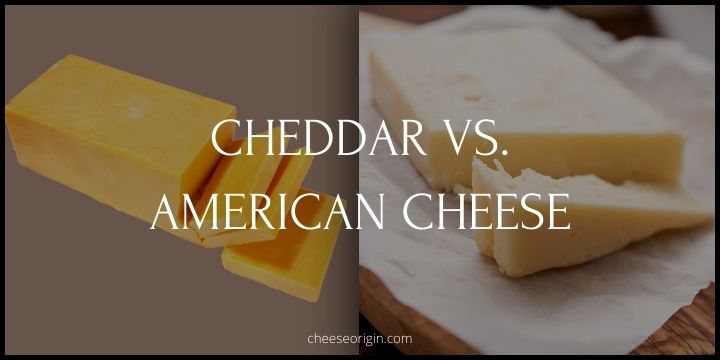The Differences between Organic and Regular Cheese

Both organic and regular cheese provide high levels of protein and calcium, essential nutrients for our bodies. However, research suggests there might be more to the story when it comes to the benefits of organic cheese.
Organic cheese is often touted as a healthier choice due to its higher nutrient content, including higher levels of vitamin B and more unsaturated fats. Additionally, organic dairy products can contain significantly more lactose, vitamin E, beta-carotene, and omega-3 fatty acids than their conventional counterparts.
On the flip side, regular cheese is typically more accessible and affordable, making it a staple in many households. But what exactly distinguishes organic from regular cheese? And are the purported benefits of organic cheese substantial enough to warrant its often higher price tag?
In this post, we’ll delve into these questions, exploring the key differences between organic and regular cheese and shedding light on what each type brings to your table and your health.
What is an Organic Cheese?
Organic cheese is a type of cheese that is made from the milk of animals raised according to organic farming standards.
This means the animals are fed with organic feed, free from synthetic pesticides and fertilizers, and have access to outdoor spaces.
They are also not given antibiotics or hormones, which are commonly used in conventional farming to prevent disease and promote growth.
The process of making the cheese also adheres to organic standards, which means no artificial preservatives, colors, or flavors are used.
Organic cheese often has a richer flavor due to the high-quality milk used, and it can be a healthier choice because it contains more beneficial nutrients such as omega-3 fatty acids, vitamin E, and beta-carotene.
What is Regular Cheese?
Regular cheese, on the other hand, is produced using conventional farming methods. The cows may be given antibiotics or hormones, and their feed may be grown using synthetic pesticides and fertilizers.
The cheese-making process can include artificial additives to enhance flavor, color, or shelf life.
What is the Difference Between Organic and Regular Cheese?
| Factors | Organic Cheese | Regular Cheese |
|---|---|---|
| Nutrition | Contains higher levels of certain nutrients such as lactose, vitamin E, beta-carotene, and omega-3 fatty acids. | Excellent source of protein, calcium, and essential nutrients. |
| Environmental Impact | Organic farming practices are more sustainable and kinder to the environment. They encourage biodiversity, improve soil health, and produce fewer greenhouse gases4. | Conventional farming practices can have a greater environmental impact due to use of synthetic pesticides and fertilizers. |
| Cost and Accessibility | Typically more expensive due to the higher costs associated with organic farming and production methods. Availability may vary based on location and store. | More widely available and accessible, often at a lower cost. |
Is it Better to Eat Organic Cheese?
Whether it’s better to eat organic cheese can depend on a few factors, including your personal health goals, dietary preferences, and environmental concerns.
Here are some points to consider:
- Taste and Quality: Organic cheese is often superior in taste and quality due to the high-quality feed given to the cows and the natural cheese-making process.
- Nutritional Benefits: Organic cheese has been found to contain higher levels of protein, Vitamin B, and other nutrients that play crucial roles in the body. Additionally, organic dairy products can have higher concentrations of Omega-3 fatty acids, which are beneficial for heart and brain health.
- Environmental Impact: Organic farming practices tend to be more sustainable, encouraging biodiversity, improving soil health, and producing fewer greenhouse gases.
- Health Considerations: Cheese made from organic milk may be healthier because it contains less fat, hormones, and antibiotics often found in conventionally produced dairy products.
However, it’s also important to note that not all organic cheeses are created equal.
The conditions in which the cows are raised can vary, so it’s beneficial to research the specific brand or farm to ensure they adhere to organic standards.
Finally, cost and accessibility are also factors to consider. Organic cheese is typically more expensive than regular cheese due to the higher costs associated with organic farming and production methods.
Is Organic Cheese the Same as Raw Cheese?
No, organic cheese and raw cheese are not the same thing. The terms “organic” and “raw” refer to different aspects of how the cheese is produced.
Sure, here’s a basic comparison between organic and raw cheese:
| Criteria | Organic Cheese | Raw Cheese |
|---|---|---|
| Milk Source | Organic cheese is made from milk that comes from cows not treated with synthetic hormones or antibiotics, and the cows are fed on organic feed. | Raw cheese is made from milk that has not been pasteurized. The cows can be conventionally raised, grass-fed, or organic. |
| Pasteurization | Organic cheese can be made from pasteurized or raw milk. | Raw cheese is always made from unpasteurized milk. |
| Health Benefits | Organic cheese contains more omega-3 fatty acids and less saturated fat than regular cheese4. It also avoids the potential health risks associated with synthetic hormones and antibiotics used in conventional dairy farming. | Raw cheese retains all the natural enzymes and beneficial bacteria present in the milk, which can be beneficial for gut health6. However, it also carries a higher risk of food-borne illnesses due to the lack of pasteurization. |
| Shelf Life | Organic cheese generally has a similar shelf life to regular cheese. It should be consumed before the expiration date on the package. | Raw cheese may have a shorter shelf life than pasteurized cheeses because it hasn’t gone through the heat-treatment process that kills bacteria. |
| Availability | Organic cheese is widely available in most supermarkets and health food stores. | Raw cheese is less common and may be harder to find, especially in countries where the sale of raw milk products is restricted. |
Organic Cheese:

As mentioned earlier, organic cheese is made from the milk of animals raised according to organic farming standards.
This means they are fed organic feed, free of synthetic pesticides and fertilizers, and have access to outdoor spaces for grazing. The use of antibiotics or hormones is also prohibited in organic farming.
Raw Cheese:

On the other hand, raw cheese refers to cheese made from milk that has not been pasteurized.
Pasteurization is a process that heats milk to a specific temperature for a set period of time to kill bacteria.
Raw cheese is made from milk that is cooled after milking and then turned into cheese without undergoing this heating process.
Summary:
While both types of cheese can offer unique flavors and potential health benefits, they are not the same.
A cheese could be organic, raw, both, or neither depending on the farming practices used to produce the milk and the processing methods used to make the cheese.
Frequently Asked Questions
1. What are the ingredients in organic cheese?
The primary ingredients in organic cheese are organic milk, cheese cultures, and salt. In some cases, enzymes (non-animal or vegetable) are also used in the cheesemaking process.
Certain types of cheese may include additional ingredients. For instance, Organic Valley’s 3 Cheese Italian Blend includes organic mozzarella and provolone cheeses.
Some organic cheeses, like Horizon’s Organic American Cheese Slices, may also include organic nonfat milk, organic milk fat, sodium citrate, calcium phosphate, organic annatto for color, and citric acid.
2. What brand of cheese is organic?
There are several brands that produce organic cheese, each offering a variety of flavors and types. Here are some of the notable ones:
- Organic Valley: This cooperative produces a wide range of organic cheeses, from cheddar to mozzarella.
- Sierra Nevada Cheese Company: Known for handcrafting organic dairy products free of hormones and antibiotics.
- Natural Grocers: Their brand offers pasture-based, certified organic cheese.
- Roth Cheese: They specialize in hand-crafted, artisanal quality organic cheeses.
- Rumiano Cheese Company: This family-owned company produces Non-GMO and organic cheeses.
- Honey Brook Farms: They offer certified organic cheese made from raw milk from 100% grass-fed cows.
3. How can you tell if cheese is natural or processed?
Natural cheese is typically made directly from milk, by adding harmless bacteria to the milk which helps in separating the curd from the liquid. If you’re looking at a block of cheese, the ingredient list should be relatively short, containing items like milk, cheese cultures, enzymes, and salt.
Processed cheese, however, is not made directly from milk but rather from a blend of cheeses and other ingredients. It often contains things other than what should normally be in cheese, like vegetable oils and chemical preservatives. The package might also say “processed cheese,” “prepared cheese,” or “cheese food,” indicating it’s not 100% cheese. Most of the time, processed cheese hovers around 50% actual cheese.
Additionally, the behavior of the cheese when heated can also be a clue. Under similar conditions, processed cheese with chemicals is difficult to melt, while natural cheese melts easily.
Also read:
- Savor the Flavor: 20 Cheeses with the Least Lactose
- Best Wine and Cheese Pairings: The Ultimate Guide
- The Science of Cheesemaking: A Journey from Milk to Artisanal Delight
- What Kind of Cheese is Used on Nachos?
- What Pairs Well with Cheddar: The Ultimate Guide
- 12 Most Popular Cheeses in the World
- What Fruit Goes on a Charcuterie Board?






